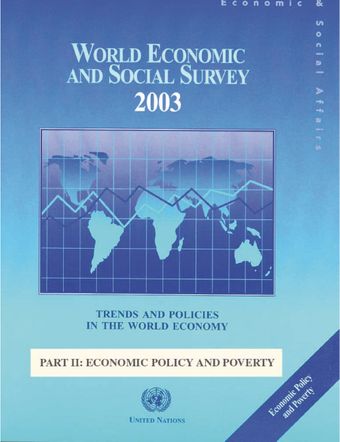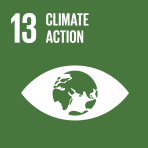Trade Policies, growth and poverty

- Author: United Nations
- Main Title: World Economic and Social Survey 2003 , pp 163-186
- Publication Date: October 2006
- DOI: https://doi.org/10.18356/98f58f4a-en
- Language: English
John Stuart Mill, writing in the middle of the nineteenth century, noted the crucial role that trade can play in the process of development, maintaining that “the opening of foreign trade … sometimes works as a sort of industrial revolution in a country whose resources were previously underdeveloped”. At the beginning of the twenty-first century, this link has taken on a slightly different emphasis. The current focus is heavily on the impact of trade policy on an economy and, specifically, on the potential role of trade policy in poverty reduction. A variety of factors have conspired to bring this connection to the forefront in recent decades. First, there has been the strong export performance of a number of East Asian economies, commencing in the 1970s, and the vigorous economic growth that came in the wake of their export drives. Moreover, beginning in the 1990s, concern with the process of globalization began to capture the attention of policy makers and the public. In particular, a great deal of attention has been directed at the question whether income gaps are widening between those countries that are successfully integrating themselves into the world economy via their trading patterns and those that are falling by the wayside. Increasing concern is being expressed at the lack of progress of these poorest economies and their possible marginalization. The need to include the poorest has been articulated in the United Nations Millennium Declaration. The Millennium Declaration emphasizes the need for poverty eradication and underscores the need for an open trading system that is “rule-based, predictable and non-discriminatory” (para. 13) as one means to this end. Finally, the Monterrey Consensus of the International Conference on Financing for Development, noting that international trade is “an engine of growth”, stated that a “universal, rule based, open, non-discriminatory and equitable multilateral trading system, as well as meaningful trade liberalization, can substantially stimulate development worldwide, benefiting countries at all stages of development” (para. 26).
-
From This Site
/content/books/9789211559101c004dcterms_title,dcterms_subject,pub_keyword-contentType:Journal -contentType:Contributor -contentType:Concept -contentType:Institution105



